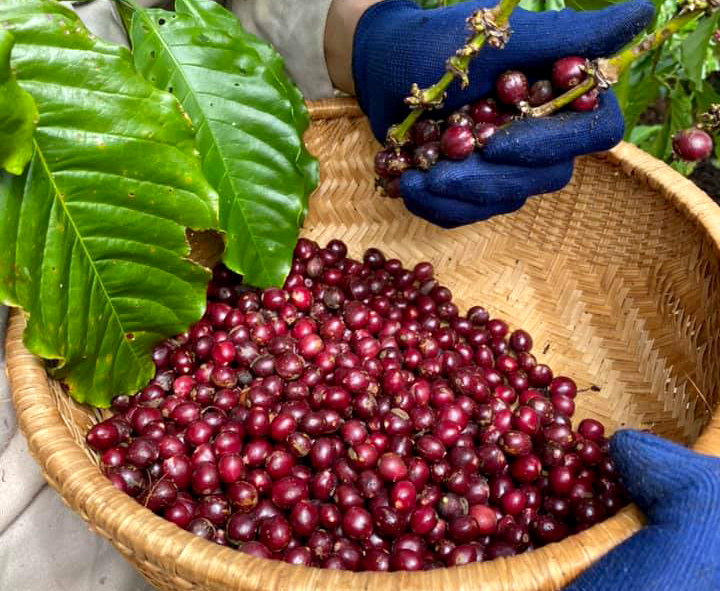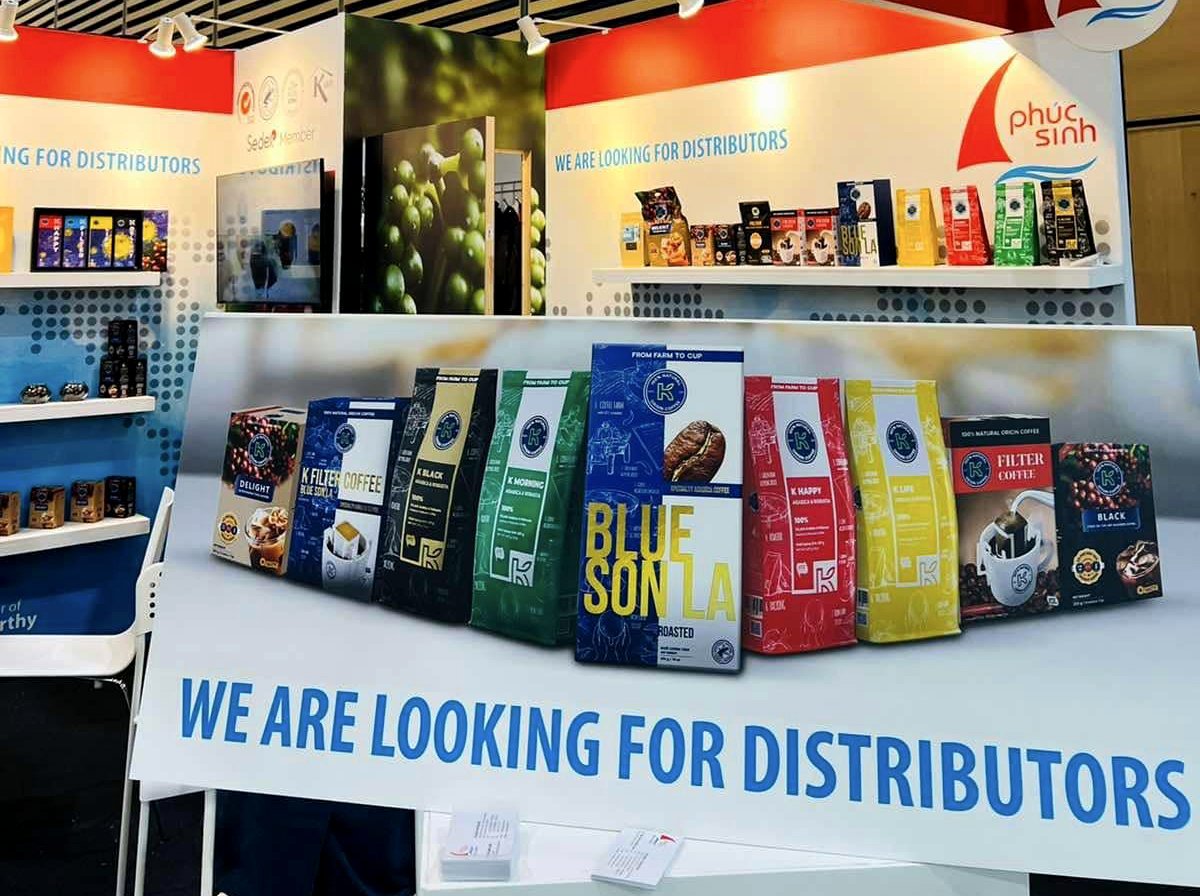November 26, 2025 | 18:45 GMT +7
November 26, 2025 | 18:45 GMT +7
Hotline: 0913.378.918
November 26, 2025 | 18:45 GMT +7
Hotline: 0913.378.918

Vietnamese farmers harvesting coffee. Photo: Son Trang.
According to Eurostat, a statistical agency based in the European Union, coffee imports from non-EU markets are on a steady decline. On the other hand, the EU market is experiencing a noticeable increase in coffee imports from Vietnam.
Accordingly, the EU imported approximately 1.42 million tons of coffee from non-EU markets in the first six months of 2023, which is valued at 5.4 billion EUR, or 5.78 billion USD. This is a decrease of 7.8% in volume and a decrease of 12.7% in value compared to the same period in 2022.
Brazil, Vietnam, Honduras, Uganda, and other non-EU markets play a significant role in supplying coffee to the EU. Most notably, Brazil remains as the largest supplier, although imports from this market are trending downward. Coffee shipments from Brazil to the EU within the first six months of 2023 amounted to 440.29 thousand tons, which is valued at nearly 1.67 billion EUR, or 1.78 billion USD. This is a decrease of 18.9% in volume and a decrease of 21% in value compared to the same period in 2022. Brazil's market share in the EU's total coffee imports from non-EU markets decreased from 35.33% in the first six months of 2022 to 31.06% in the first six months of 2023.
In contrast, the EU has increased its coffee imports from Vietnam. Accordingly, coffee shipments from Vietnam to the EU reached nearly 389.9 thousand tons within the first six months of 2023, which is valued at 854.23 million EUR, or 914.11 million USD. This is an increase of 21% in volume and an increase of 18.1% in value compared to the same period in 2022. Vietnam's market share in the EU's total coffee imports from non-EU markets has risen from 20.96% in the first six months of 2022 to 27.5% in the first six months of 2023.
According to coffee experts and traders in Vietnam, the EVFTA agreement is contributing to an enhanced competitive advantage for Vietnamese coffee in the EU market, with a focus on processed coffee products.

Phuc Sinh's processed coffee products showcased at an international trade fair. Photo: Son Trang.
According to Mr. Luong Van Tu, former Chairman of the Vietnam Coffee and Cocoa Association (Vicofa), leading European conglomerates in the coffee industry have engaged in cooperation and business activities in Vietnam within the last few years. Prior to the EVFTA, these businesses primarily collaborated in coffee production and processing. However, they only purchased raw and unprocessed coffee beans when exporting to the EU. This exemption was caused by the high tariffs imposed on processed coffee importsin order to protect the European coffee processing industry. Consequently, Vietnamese businesses, including FDI entities, mainly exported raw coffee beans to the EU before the enforcement of the EVFTA.
Following the entry into force of the EVFTA, import tariff into the EU for Vietnamese roasted coffee, instant coffee, and other coffee products have significantly decreased, with several notable products reaching a 0% tariff rate. This development has encouraged domestic and FDI businesses to invest in factories and equipment for processing, with the aim of exporting to the EU.
Mr. Phan Minh Thong, Chairman of the Board of Directors of Phuc Sinh Coffee Company located in Ben Cat city, Binh Duong province, highlighted that the EU is Phuc Sinh's largest market, accounting for nearly 50% of its revenue. Phuc Sinh has recently invested in the deep processing of pepper and coffee products such as roasted coffee, instant coffee, etc. These deep processing activities have become a crucial foundation for the company to boost exports of processed products to the EU. Within the last three years, the proportion of Phuc Sinh's processed products in the structure of its agricultural export to the EU has increased from 8% to 22%.
According to Mr. Thong, numerous Vietnam-based FDI businesses are reinforcing their investments in factories for the processing of coffee and several other key agricultural products. Subsequently, their products are exported to the EU in order to leverage the tariff advantages provided by the EVFTA. Consequently, competition in the coffee industry, along with several other sectors, is becoming increasingly fierce. This is driving Vietnamese businesses to invest in adjustment to their management and operational approaches to effectively compete with FDI businesses.
Translated by Nguyen Hai Long

(VAN) The model of making a living under the forest canopy through the agroforestry system in Van Son commune, Bac Ninh province, is expected to generate an annual income of approximately VND 30 million/ha.

(VAN) Many enterprises in Can Tho are harnessing natural energy and reducing greenhouse gas emissions in their production processes, thereby contributing to the promotion of a sustainable green transition.
/2025/11/24/3536-2-112800_176.jpg)
(VAN) Dong Nai now has tens of thousands of hectares of forests certified for sustainable management, and this area will continue to be expanded in the coming period.

(VAN) Vinh Ha hamlet (Dai Xuyen commune, Hanoi) is shifting away from small-scale farming as households adopt bioscurity into their breeder chicken models.

(VAN) Heavy rains make aquatic species more vulnerable to disease. Proactive water management and high-tech systems help farmers prevent outbreaks and protect yields.

(VAN) Greenhouses are shifting production mindsets in Binh Lu commune, enabling farmers to ‘weather the sun and rain’ and secure stable vegetable harvests throughout the year.

(VAN) Green transition is crucial for the Mekong Delta amid climate change and stricter standards, offering a path toward sustainability.